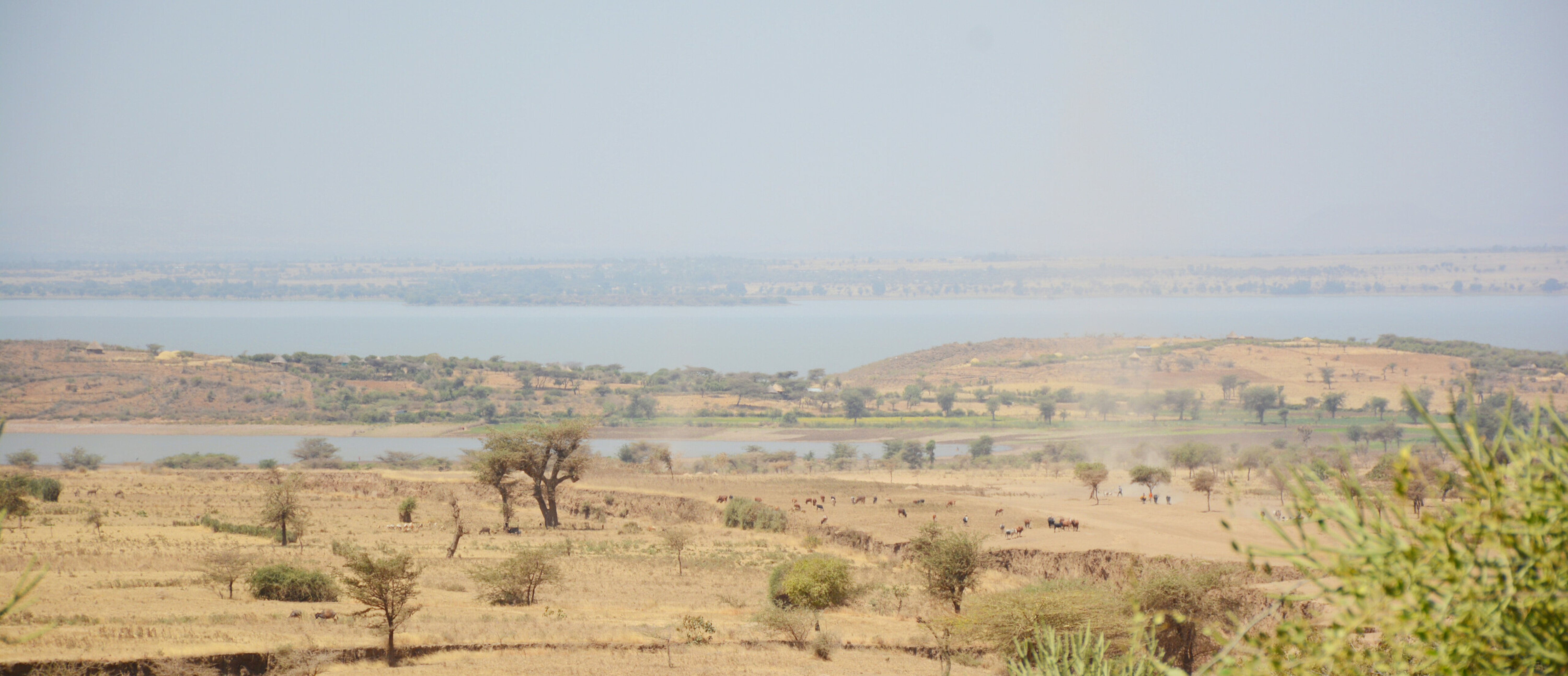Rainbow for the Future
The Awash River flows for 1,200 kilometers through the highlands of the Great Rift Valley in Ethiopia, until it disappears into the salt lakes near Djibouti’s western border. It is a wide, generous river that has been harnessed for irrigation and hydroelectric purposes. Of its many dams, the Koka was built in 1960 to supply electricity to central Ethiopia. The dam’s construction has created a massive, 180 square kilometer reservoir.
Over the years the Koka Reservoir has become the only accessible source of water within 15 kilometers for the 20,000 people who live in the community of Bati Boro. Unfortunately, the reservoir has also become a dumping ground for untreated, unregulated, and deadly effluent from surrounding industries. Today, the water is so heavily polluted that it glows a toxic green colour. The people who rely on the lake’s water are forced to struggle with insurmountable health problems — from babies born with birth defects, to chronic diarrhea, to devastatingly high mortality rates. These health issues have inhibited people from investing in their communities or livelihoods, perpetuating a vicious cycle of poverty.
“When a project begins and ends with the beneficiaries, the likelihood of sustainable change is vastly improved.”
Drilling a well in this region is an act of faith. More often than not, the water beneath the soil has a level of naturally occurring fluoride that is equally as toxic as the reservoir water. To make matters worse, the local government has not felt the pressure to improve water resources, because it receives external aid and social support when harvests fail, droughts occurs, or villages are flooded by rainfall. The morale of the people is understandably bent, but not yet broken.
Since 2010, Rainbow for the Future (RFTF) has been engaged in sustainable development work with Bekelech Demessie, a remarkable young woman who was born in the tiny village of Didimtu, not far from Koka Lake. She has dedicated her life to helping the people in her native region improve their standards of living. In 2009, Bekelech established an Ethiopian-registered NGO called Save Generations Development Organization, which has developed a number of community infrastructure projects in partnership with RFTF. However, the problem of safe drinking water remained unsolved.

In 2015, RFTF embarked on a plan to finance and implement a community water and irrigation system for the area. Because local ownership leads to sustainability, the project beneficiaries were required to invest 25% of the project’s costs in the form of labour and local building materials. The community residents were then organized into legal groups to set rates for water usage, maintain the infrastructure, and manage distribution. Upon completion, the community will take full control of the project. The local Woreda Water Authority has signed agreements to provide technology to treat the water and remove the fluoride before people access it at community water stations.
Over the years, RFTF has learned that when a project begins and ends with the beneficiaries, the likelihood of sustainable change is vastly improved. The beneficiaries of the Koka Project are looking forward to a brighter future for their community, and, for the first time in decades, access to clean water.